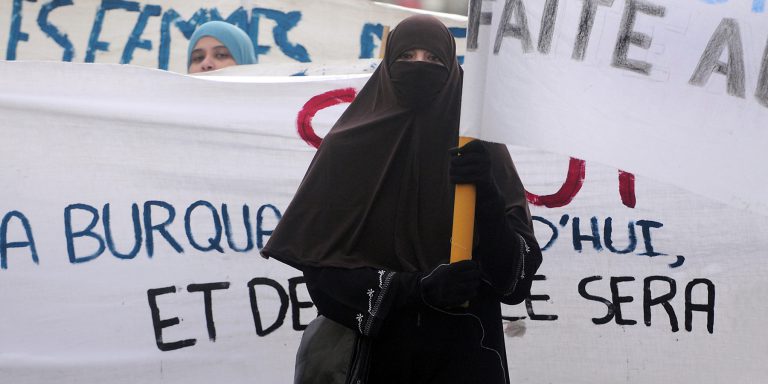
The heated debate over wearing veils at public universities in France has been rekindled following a series of recent incidents which have taken place across the country.
The issue triggered public debate earlier this month, when a professor teaching at L’Université Paris 13 stated that he did not support “religious symbols in public places”, referring to a young woman wearing a hijab- a form of cloth head covering- in his class. The professor involved has been demoted for his comments.
In September last year, a professor at the University of Paris asked a student whether or not she planned to continue wearing “that thing” in class, indicating to the young woman’s headscarf. The president of the University made a public apology for the professor’s comments.
Hosting the largest community of Muslims in continental Europe, which currently exceeds five million, France has maintained a contentious relationship with the hijab. In 2004, the country approved a law banning the hijab in stats schools; the following year, it banned the full Muslim veil.
Issues such as immigration and religious freedom have become not only hugely pertinent but also extremely sensitive across France in the wake of the attacks carried out last month by Muslim immigrants during which 20 lost their lives. With the approach of the French presidential elections and the country still reeling after such brutality, ambiguity surrounds the steps France will take to integrate and assimilate its immigrant communities.
In a recent address given at the University of Paris, French President Francois Hollande called for the “secular teaching of religion”, adding that France’s official secularism “does not mean forgetting religion- or indeed being in conflict with religion.”
Last week, former French president Nicolas Sarkozy’s UMP (Union for a Popular Movement) party voiced its support of a proposal to implement more restrictive measures on displaying religious symbols in French public spaces. Such measures include a total ban on wearing the hijab on university campuses.
Sarkozy’s support for restrictive measures concerning the hijab is widely known: in 2009, he announced that the niqab, the full Muslim face covering, is “not welcome” in the country.
As the presidential elections approach, the concept of secular education is a key topic for discussion. Party leader Marine le Pen’s National Front, which uses the slogan “The French Come First”, is becoming increasingly popular; Lydia Guirous, who is responsible for secular affairs at the UMP, commented to the press that “secularism doesn’t have to stop at the university doors.”
“Like public schools, public universities need to be sanctified and need to be neutral,” said Guirous.
Unsurprisingly, the republic’s ideal of maintaining a secular community is often interpreted as being insulting to religious groups.
Lawyer and former president of the French Human Rights League Michel Tubiana described the proposal as “imbecilic.”
“Secularism doesn’t apply to university students,” he said, “but rather to the [policies of] professors and to the university itself.”
Washington University’s Professor of Anthropology John Bowen commented that the proposed ban on hijabs at university level is “another in a series of moves drawing symbolic boundaries, saying ‘You may be perfect citizens, but we’ll never stop reminding you that you’re not totally integrated.”
“The effect of these laws is to say to Muslims who are doing what they are supposed to be doing: ‘You’re not real citizens’.”
Got an opinion? Contact the Editor via emily@studyinternational.com.
Like this? You’ll love these…
Turkey women rally over murder of student ‘who resisted rape’
Students pepper sprayed by police at Christopher Pyne protest







